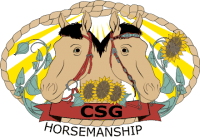Please RSVP to meetings by registering here or e-mail Chauntel at CSGhorses@gmail.com. Officers are required to attend business meetings. Please remember March & April can be very cold and wet, so please be dressed appropriately at outdoor/barn meetings.
Interested in joining our club? Start by contacting Essex County 4-H 🙂
| Date | Time | Where | Description |
| Saturday March 11 | 1:30 pm | Noblewood Park | RVR Business meeting – officers must attend. |
| Saturday March 18 | 1:30 pm | CSG Horsemanship LLC/Ben Wever Farm | Project meeting – Please dress very warmly, we’re still experiencing winter weather! |
| Saturday March 25 | 9 am | BVCS Westport campus | Public presentations |
| Saturday April 1 | All day | St. Lawrence University | Potential field trip to St. Lawrence IHSA regional finals |
| Thursday April 6 | 5:30 pm | CSG Horsemanship LLC/Ben Wever Farm | RVR Business meeting – officers must attend |
| Sunday April 9 | 1:30 pm | CSG Horsemanship LLC/Ben Wever Farm | Project meeting |
| Saturday April 15 | 4 pm | CSG Horsemanship LLC/Ben Wever Farm | Project meeting |
| Saturday April 22 | 4 pm | CSG Horsemanship LLC/Ben Wever Farm | Project meeting |
| Saturday April 29 | All day | Essex County Fairgrounds, Westport | 4-H Evaluations and Clinic |
| Wednesday May 3 | 5:30 pm | CSG Horsemanship LLC/Ben Wever Farm | Project meeting |
| Saturday May 6 | 4 pm | CSG Horsemanship LLC/Ben Wever Farm | Project meeting |
| Saturday May 13 | 4 pm | CSG Horsemanship LLC/Ben Wever Farm | Project meeting |
| Friday May 19-Sunday May 21 | All day | Clinton County Fairgrounds, Plattsburgh | 4-H Horse Camp |

